3 Key Questions to Ensure Your Property's AI is Built on the Right Data Foundation
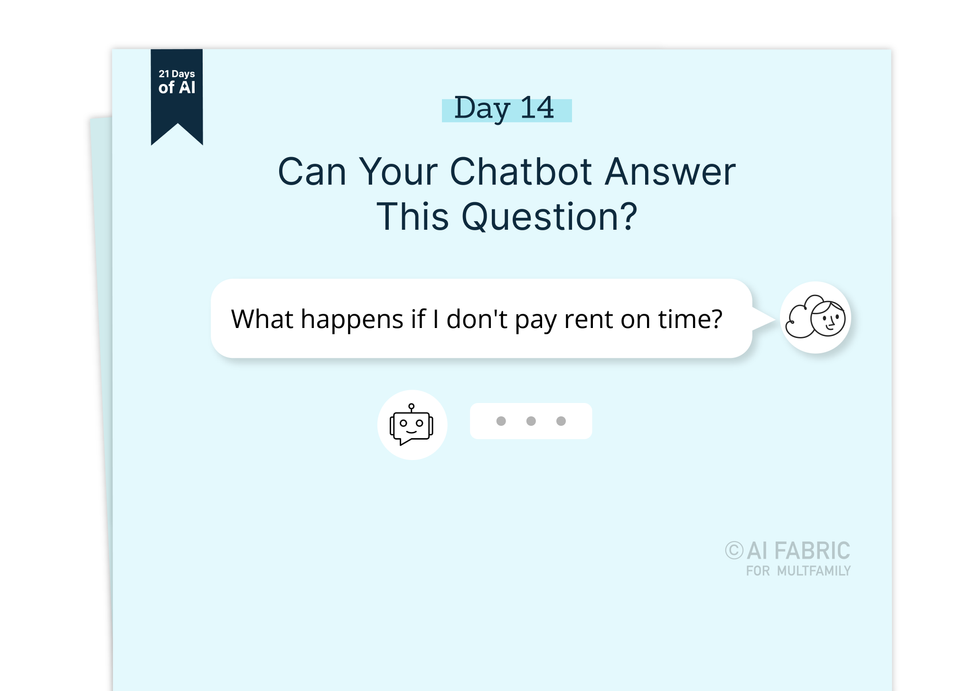
💬 Imagine a prospect asking your AI chatbot or voicebot, “What happens if I don't pay rent on time?” The answer to this question isn't on the website, it isn’t in the FAQs, and a simple search won’t reveal it. Yet, it’s there in every lease agreement—buried deep within the fine print.
So, how do we make such crucial but hidden information easily accessible for an AI chatbot or voice bot?
This is where a deep data foundation powered by knowledge graphs becomes crucial. Knowledge graphs organize and link data in a way that makes it easy for AI systems to retrieve precise, human-like answers.
What Are Knowledge Graphs, and Why Do You Need Them?
Knowledge graphs are a structured way of organizing and linking data, creating relationships between different pieces of information. Imagine a web where each point represents a piece of data, and the connections illustrate how they relate to one another.
In multifamily, property knowledge graphs connect critical data points—lease terms, unit availability, amenities, neighborhood features, and resident feedback—into a well-organized network that AI systems, like chatbots or voicebots, can easily access. This deep data foundation ensures AI delivers accurate, personalized responses by pulling from connected, reliable data sources.
💡 Why Does This Matter? Without a strong data foundation, your AI’s responses will be incomplete, missing key details that impact leasing decisions and resident satisfaction.
For example, if a prospect asks an AI chatbot, “Can you show me some of the best reviews from current residents?” the property knowledge graph can quickly pull together data from various sources—like the property’s internal database, public review sites, and resident surveys—and provide a curated selection of reviews. It might also offer additional context, such as the specific features or amenities that residents have praised, helping the prospect make a more informed decision.

Consider more questions a prospect might ask:
- Are there good restaurants or grocery stores nearby?
- What are the available units and prices?
- What are the lease terms?
To handle these inquiries efficiently, property knowledge graphs efficiently pull data from sources like Google Maps for amenities, internal systems for unit availability and pricing, and lease documents for accurate terms.
This enables AI to provide precise, contextually relevant answers, enhancing the prospect experience and streamlining property management by reducing manual data retrieval.
How to Evaluate and Measure the AI’s Deep Data Foundation before Investing?
Here’s how you can evaluate and measure if the AI solution you are investing in has this foundation:
1. Ask the Vendor:
Does the AI leverage property knowledge graphs to organize and link important data (e.g., lease terms, availability, amenities)?
Why it matters: Without knowledge graphs, the AI relies on fragmented data, leading to incomplete or irrelevant responses. Knowledge graphs ensure well-structured, interconnected data that supports smarter answers.
2. Ask the Vendor:
Can the AI integrate with external data sources (Google Maps, review sites) and internal property systems?
Why it matters: A well-rounded AI needs access to a broad range of connected data to answer complex questions. The more sources it pulls from, the more accurate and personalized the responses.
3. Ask the Vendor:
How does the AI’s knowledge graph update as new data comes in?
Why it matters: A deep data foundation should evolve with new information to keep AI responses current and relevant.
To assess the AI’s data capabilities, consider:
- Data Sources: Does it integrate both property-specific and external data?
- Data Accessibility: How easily can it pull information from different systems and documents?
- Data Updates: Is the data regularly refreshed to ensure up-to-date responses?
By ensuring the AI has a deep, evolving data foundation, you’re setting the stage for smarter, more efficient automation that scales with your property’s needs.
What questions do you have about evaluating AI for your property? Share them in the comments—we’d love to help you make the right decision.

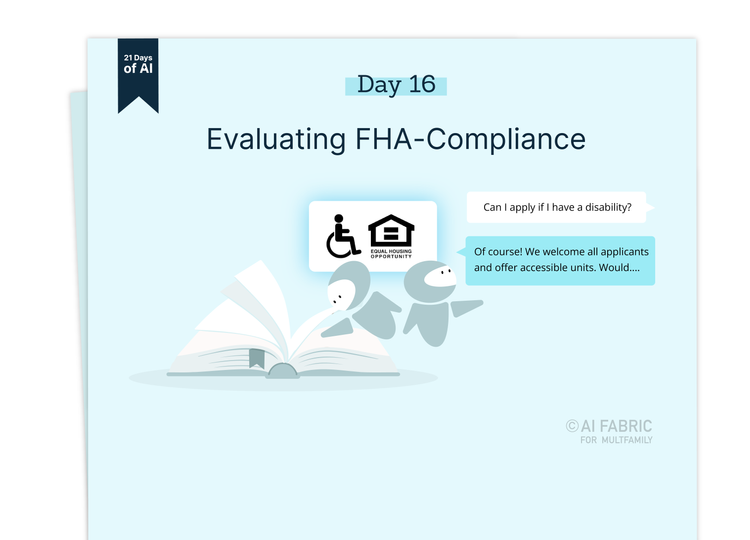
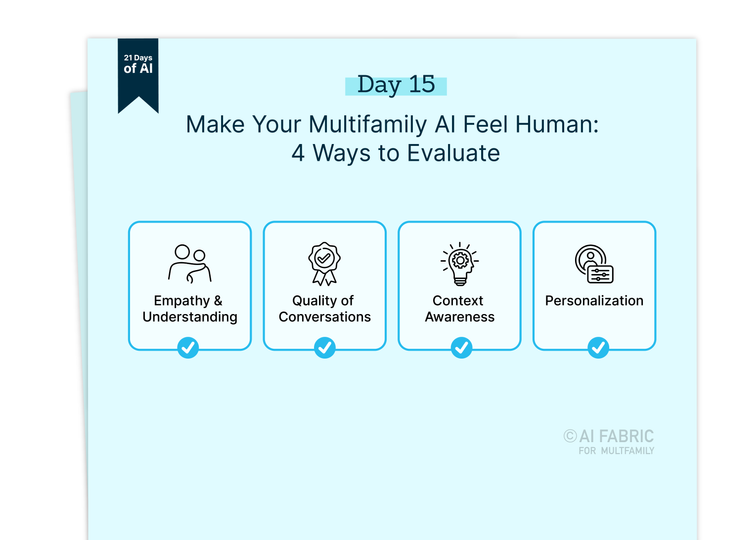
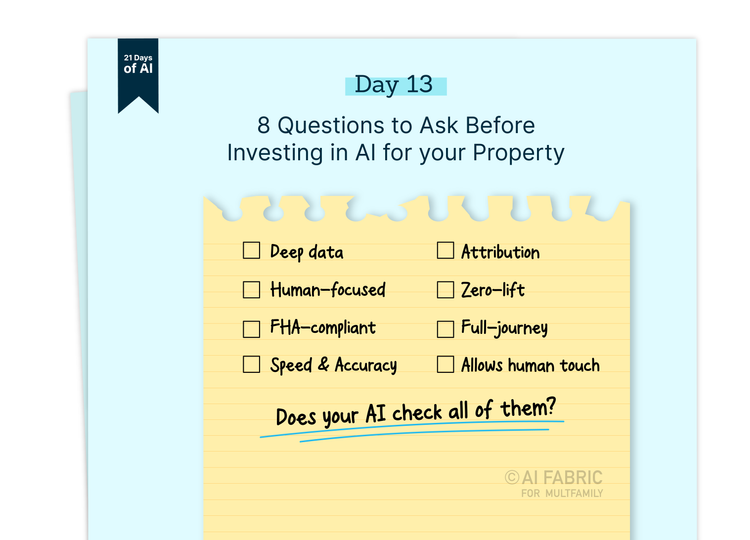
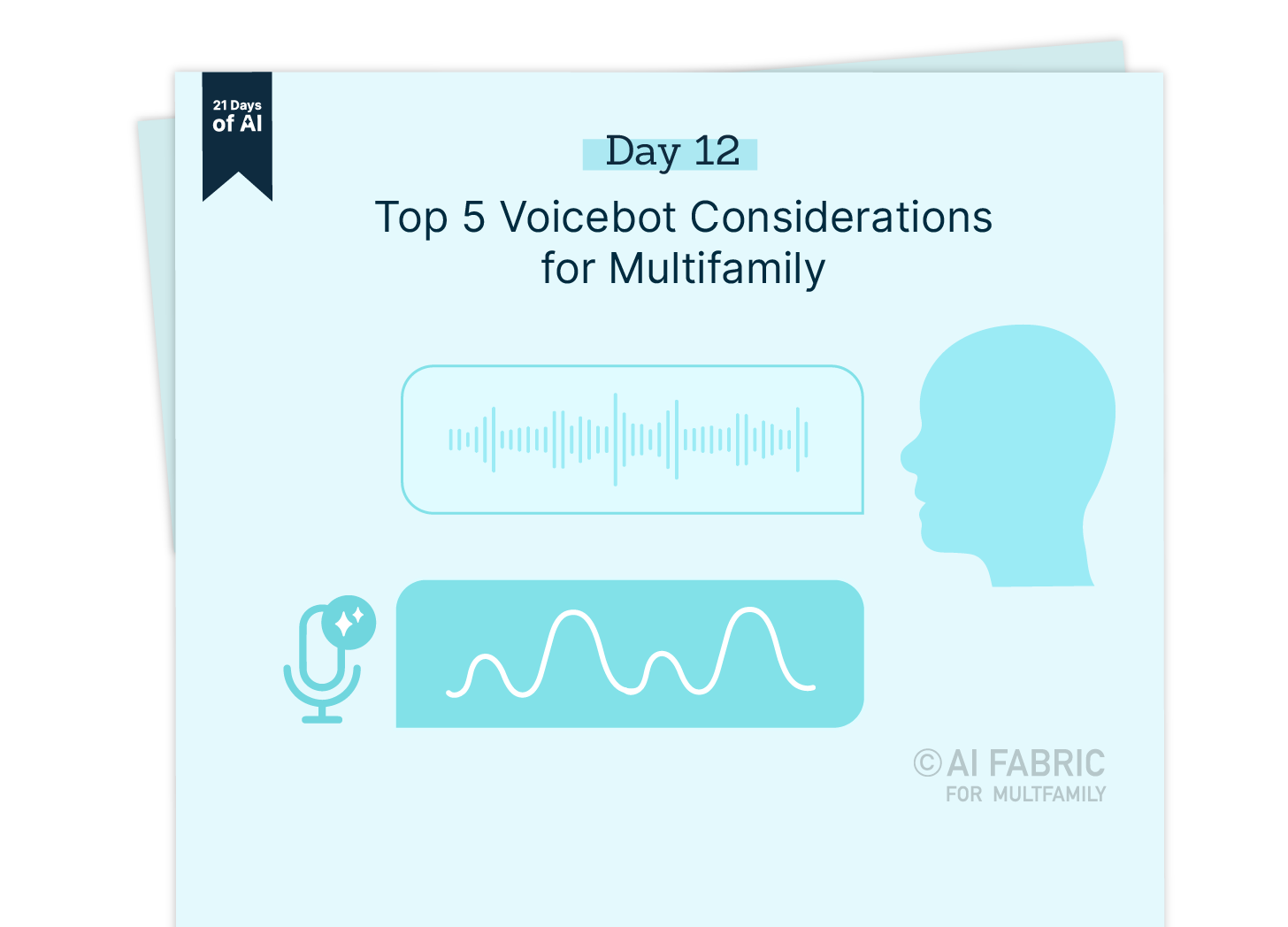

Member discussion